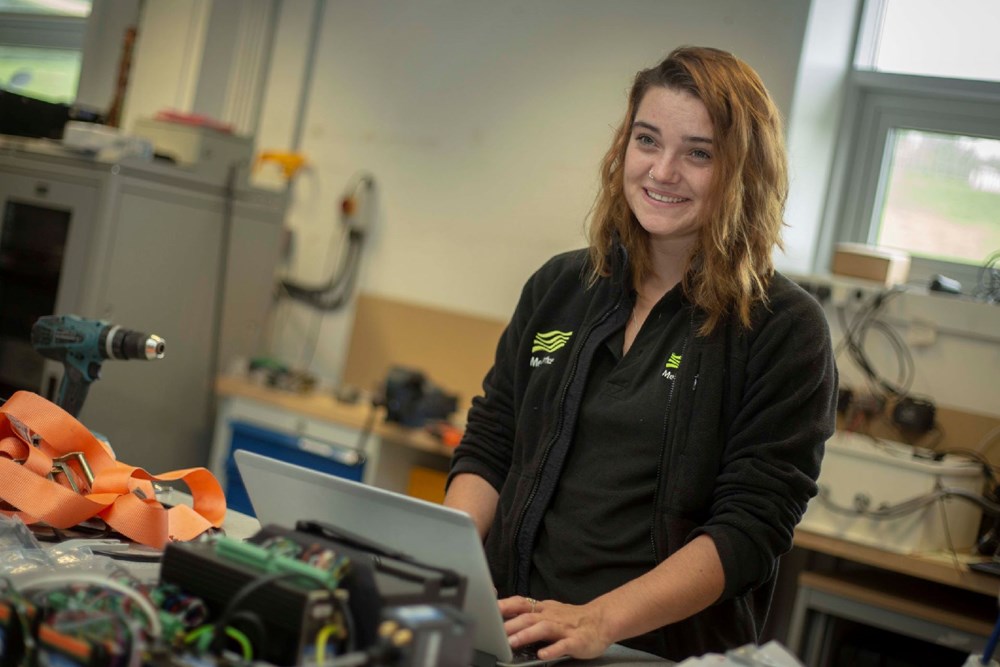Chasing rainbows at the Met Office
Meet Tess, an apprentice engineer at the Met Office. Tess helps look after weather stations all over the UK.

- Company: Met Office
- Job: Technician Engineer
What do you do? Tell us about your job:
My time is mostly spent on one of our major engineering projects. This is a upgrade of all of the land-based weather stations and working on this has allowed me to travel across the country and overseas, completing various engineering tasks and completely redesigning the way in which weather forecasts are made.
How did you become an engineer?
I started at the Met Office as a Level 2 Engineering Apprentice. I then moved on to a Level 3 programme before being lucky enough to gain a permanent position as a technician within the observations team where I completed my apprenticeship.
During my apprenticeship, I worked with lots of engineering teams, and it gave me experience of a wide range of engineering systems we use at the Met Office to collect weather data from across the country. I learnt about the engineering needed to grow ideas, different equipment and systems and the ongoing maintenance. I’ve now been given the opportunity to continue developing my education by doing a Open University degree in engineering while continuing in my job at the Met Office.
What advice would you give to someone who wants to be an engineer?
The best advice I could give to young people wanting to get into an engineering career would be to follow an apprenticeship route.
From my experience, there is no better way to learn than to be fully immersed in the subject. What makes a good engineer is having the ability to take a theory or idea and apply it to a real-life situation where you can visualise and understand what’s happening and why things do what they do.
Apprenticeships offer a flexible and broad learning opportunities, and build your skills and abilities through the use of a huge variety of systems and equipment.
What do you love about engineering?
For me, the variety of engineering is what keeps me so interested and excited about my career. Engineering is an ever-changing and developing area with new systems and technologies being produced every day. In my job, this means that no two days are the same. You’re always looking to the future and how you can begin to introduce new technologies into existing systems and how sometimes very minor changes can make huge advances.
My other favourite aspect of engineering is that it’s ok to be wrong! Getting something wrong is never bad in engineering, we all have to be wrong to learn how to be right. No matter how experienced or qualified you are, things can often go slightly wrong and you continue to learn every day.